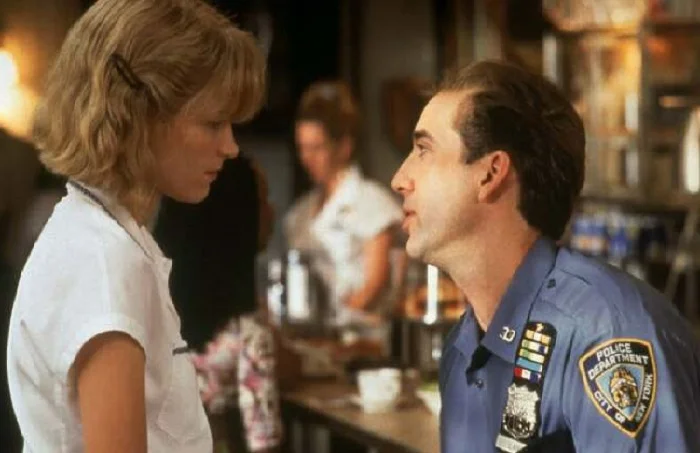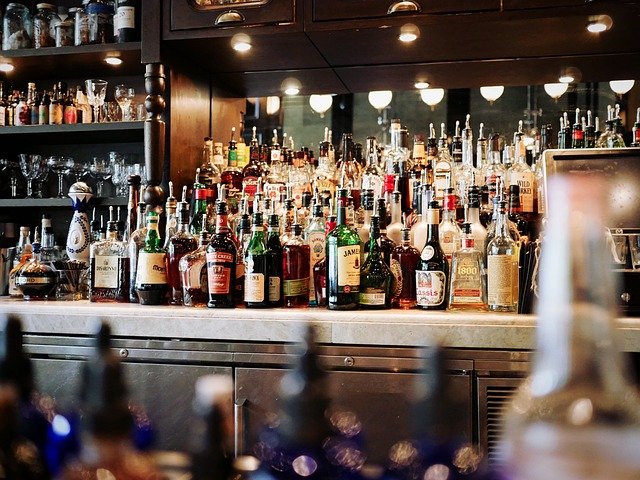How the tradition of leaving “for tea” appeared and where it is not customary to leave them

The tradition of leaving “for tea” originated in the vastness of England and eventually spread to almost all countries. The very concept of “tipping” appeared in England in the 16th century, when the tradition of tea drinking that they loved was born among the British. If the guests stayed overnight in the owner’s house, they left a salary to his servant.
Now in many countries, it is customary to leave a tip in the service sector, mainly in cafes and restaurants. However, this tradition still causes conflicting feelings: someone easily leaves a generous tip and does not understand why you need to pay extra. So why is this being done, and who benefits from it?
The history of the tradition of leaving “for tea”
In fact, a tip is just a way to express your gratitude to the waiter for his service, in addition to the payment on the bill that goes to the restaurant. Often, this is facilitated by fast and high-quality service and a pleasant interior, good music, or a delicious dish.
There are several versions of the origin of the English word “tips”. Based on the first version, TIPS is not a word, but an abbreviation for the phrase “to insure prompt service”. There is a hypothesis that earlier in England in many tea shops and inns, there was a box into which a guest could throw a coin in order to attract attention and get quick service from the staff.

The second version, more popular, says that this word comes from a secret criminal language that was used in England at the end of the 16th century, when “to tip” meant “to share, give some part to someone.” And already at the beginning of the 18th century, the word was already used in England and in the literary language, meaning “to share something, to give something small.”
Reasons why visitors leave tips
Until now, the tips phenomenon has been of great interest to many economists. Why should the visitor pay extra to the bill if he is not required by law to do so? In addition, it goes against our personal interests and forces us to make additional expenses. British psychology professor Richard Lynn believes there are a number of reasons why we tip. The main one is the desire to comply with generally accepted rules in order to avoid condemnation or to gain the respect of others. Don’t forget, though, that this is also a way to motivate staff to provide better service, as well as to thank them for a job well done.
For some, tipping is a way to emphasize their status. Often these people leave them for services, for which they rarely give a tip, for example, for work done in a veterinary clinic or at a service station. For some, the main motive is a sincere desire to thank the employee. Such people usually leave tips for workers of all professions. And those who leave tips just because they have to usually do it only in generally accepted situations, for example, for delivery or parking a car.
What is a tip for?
The state, unlike service workers, does not benefit from tips since this cash flow cannot be controlled and taxed. Many people think that because of tips, the income of waiters becomes unreasonably high. But, if you look from the point of view of the restaurant owner, then tips just allow you to reduce the salary of the restaurant staff, which, by the way, often helps reduce prices on the menu. However, restaurateurs do not have access to tips to distribute them among all employees, so waiters often earn much more than cooks due to “monetary thanks” from visitors.
Some restaurants initially indicate the tip amount on the bill. Basically, it does not exceed 20%, since too high percentages can scare away customers, or the visitor will leave without leaving anything superfluous at all. According to the study, restaurants with a fixed tip policy are less popular than establishments where the percentage is not included in the bill. However, in some establishments without a tip, a service fee is included in the bill, but basically, all costs are already included in the prices on the menu, which makes the restaurant more expensive and can reduce attendance.
Such a fate bypasses only elite restaurants, which, including service in prices, absolutely do not suffer from a decrease in the flow of customers. And many wealthy guests of elite restaurants do not care about high prices. Indeed, service should be at the highest level in prestigious restaurants, even without a tip.
In addition, premium-class restaurants do not have a large influx of guests, which makes it possible to reduce the staff of waiters. Accordingly, because of this, it is more convenient for management to control the quality work of their employees.
Now some establishments are trying to get away from tipping altogether. Like, for example, the New York restaurant chain Union Square Hospitality Group. This was done in order to increase wages for staff who are not directly involved in serving visitors, as well as to create the right career development system. Despite the fact that the restaurant faced many difficulties and misunderstandings, positive dynamics soon began: restaurant guests accepted changes in the tip system, and staff turnover decreased.
World practice
Each country has its own rules for tipping. Based on research, nations that score high on the extraversion scale are more generous with tips. Also, a huge role is played by social norms, the difference in income, and, of course, the very tradition of tipping. The practices of other cultures are also influenced. In 2016, scientists found that after returning from trips to America, people began to leave more significant additional amounts for the service.
Now in the world, the attitude towards tipping is very different. For example, in Japan, they are not left at all. If the visitor leaves money on the table, then there is a high probability that the waiter will run after him to return the “forgotten”. And there is a chance even to offend the waiter since such a gesture implies a hint of poor service.
But in the US, the opposite is true, where tips are actually the client’s responsibility. By the way, in the USA, they leave the biggest tip, 15 – 25% of the bill. By comparison, in Brazil – 10%, and in Sweden – 5 – 10%. In Russia, in general, tips are low. Perhaps they are not firmly rooted because of the history: in the USSR, tips were not encouraged, as they were considered bourgeois manners. However, Russia still considers it normal to leave about 5 – 10% of the bill to the waiter if the institution does not have a fixed amount.
The biggest tip
Probably, many have seen the film “Lucky Chance” (1994) with Nicolas Cage and Rosie Perez in the lead roles. Here it was based on the story when the waitress Phyllis Penzo, by a lucky chance, received the biggest tip in history. It happened in March 1984 in New York City when police officer Robert Cunningham walked into Sal’s Pizzeria as usual.
 true story where a waitress received a $3 million tip.” class=”wp-image-84644″/>
true story where a waitress received a $3 million tip.” class=”wp-image-84644″/>It should be noted that he was a regular visitor in this pizzeria, and it was the waitress Phyllis Penzo who almost always served him. So Robert and Phyllis, who had worked there for more than twenty years, maintained friendly relations. On that day, the police officer jokingly offered his favorite waitress to give the winnings from the lottery ticket instead of a tip. To do this, it was necessary to choose six numbers: three of which were noted by Robert, and Phyllis chose three.
All the numbers coincided with the winning combination by the will of fate. So as a result, this lottery ticket brought in six million dollars. On an early April Fool’s morning, Robert woke Phyllis up with a call, stunning with the good news. He had to prove that this was not a joke for a long time, and they really hit the jackpot. The lottery paid them $285,715 annually for twenty-one years.
It is worth noting that, unlike the movie, Robert’s wife was not opposed to sharing the winnings with the waitress. She figured that if Phyllis picked half the numbers, then she was entitled to half of the winnings. Yes, and Robert said that he had always lived an ordinary life, so he hopes that millions will not change him.
By the way, that’s what happened. Having received the money, the policeman did not mindlessly spend it, but bought a small house. The only luxury that Robert allowed himself was to buy a new Cadillac every three years.
Phyllis Penzo also bought herself a house. Interestingly, she worked as a waitress in a pizzeria for about two more years. Visitors were surprised at such dedication to her work and constantly reminded her of her winnings, advising her to quit and open her own restaurant. However, after more than twenty years of working as a waitress, she no longer wanted to get involved in this business.




